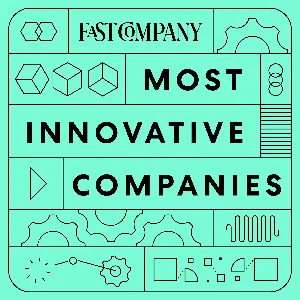Podcast Summary
Shein invites influencers to China for a PR event to showcase their production process: Shein, a leading fast fashion retailer, offers trendy clothes at extremely low prices by managing production in well-lit workshops in China, despite controversy over labor practices and business transparency
Shein, a leading fast fashion retailer, has gained notoriety for offering trendy clothes at extremely low prices. A pantsuit can cost as little as $28, a graphic hoodie $11, and a full-length floral print dress just $8. However, the question of how Shein manages to keep costs so low has sparked controversy. To address this, Shein invited fashion influencers to China for a PR event called Shein 101. The group was surprised to find well-lit workshops where each piece was handled with care, contrary to their expectations of dark and dingy conditions. However, this campaign faced backlash due to concerns over labor practices and business transparency. Despite the controversy, Shein remains the world's largest online-only fashion retailer, making up about 50% of the fast fashion market. In this episode of Planet Money, NPR will delve deeper into Shein's unique strategy and its rise to global retail dominance. Remember, the BBC provides information and inspiration, allowing us to form our own perspectives on the stories that matter.
Leveraging Technology for Competitive Edge in Fast Fashion: Shein uses data scientists to identify trends and eliminates brick-and-mortar costs for cheap prices and rapid expansion
Technology plays a crucial role in Shein's business model, allowing the company to identify trends and design clothing with the help of data scientists, giving them a competitive edge in the fast fashion industry. Additionally, Shein's online-only operation eliminates the need for brick-and-mortar stores and their associated costs, enabling the company to sell clothes cheaply and expand rapidly. The story serves as a reminder that asking the right questions, like seeking a trustworthy financial advisor or understanding a business's unique strategies, can significantly impact your future. So, whether it's your finances or your understanding of a successful business, always be curious and seek knowledge. To find a certified financial planner, visit letsmakeaplan.org. For personal growth, explore clinician-curated supplements from Integrative Therapeutics on Amazon.
Shein's Unique Business Model: Massive Product Variety, Chinese Factories, and US Trade Laws: Shein offers over a million products, maintains thousands of Chinese factories, and uses US trade law exceptions to avoid customs inspections and tariffs, setting it apart from competitors H&M and Zara.
Shein's business model, which includes offering an enormous variety of products, relying on factories primarily in China, and utilizing US trade law exceptions, sets it apart from competitors like H&M and Zara. Shein's constant production of new items keeps customers engaged, with the company offering around 1,300,000 different products during a recent 12-month period compared to H&M's 25,000 and Zara's 35,000. Additionally, Shein's close relationship with Chinese factories, numbering around 6,000, and its ability to ship small orders directly from factories to customers in the US, helps it avoid customs inspections and tariffs that conventional retailers face.
Shein's Unique Business Model and Growth: Shein's advanced tech skills, large supplier network, and strategy to launch a million products have allowed the company to thrive and avoid tariffs, leading to significant growth and venture capital investments. However, concerns about its environmental impact and labor sourcing, including potential use of cotton from Xinjiang, remain.
Shein's unique business model, which includes advanced tech skills, a large supplier network, and a strategy to launch a million products, has allowed the company to thrive and avoid tariffs, leading to significant growth and venture capital investments. However, Shein's meteoric rise has also brought scrutiny to its business practices, particularly concerns about its environmental impact and labor sourcing, including potential use of cotton from the Xinjiang region of China where human rights abuses have been reported. Despite Shein's public statements denying the use of forced labor and not sourcing cotton from Xinjiang, transparency about its supply chain is lacking, raising further concerns.
Treatment of workers in influencer industry is a concern, says Sheng Tsai: Sheng Tsai emphasizes the importance of recognizing that the influencer industry is about people, not just a commodity, and influential brands hold a significant impact and responsibility towards their workers. Influencers themselves also play a role in this regard.
The treatment of workers in a business, especially those in the influencer industry, is a significant concern. Sheng Tsai, managing partner at Scale Venture Partners, emphasized this point during a discussion about Sheehan, a company looking to go public. Tsai expressed a preference for more transparency about the business over another influencer campaign. He underscored the importance of recognizing that the industry is about more than just a commodity; it's about the people. As influential brands, they hold a considerable impact and responsibility towards their workers. Moreover, influencers themselves have a role to play in this regard. For those interested in learning more about influencers, NPR has a five-part series on the topic, which will be linked in the show notes. This episode was produced by Julia Ritchie and engineered by Neil Rauch. It was fact-checked by Sierra Juarez, and Viola was the senior producer. Tati Hirsch edited the episode, and Cake and Cannon handled the production for NPR. Support for NPR comes from Saatva, a company offering luxury mattresses at affordable prices. Saatva's online sales model allows for significant savings compared to traditional brands. To learn more and take advantage of an exclusive offer for NPR listeners, visit Saatva.com/npr and save an additional $200.






